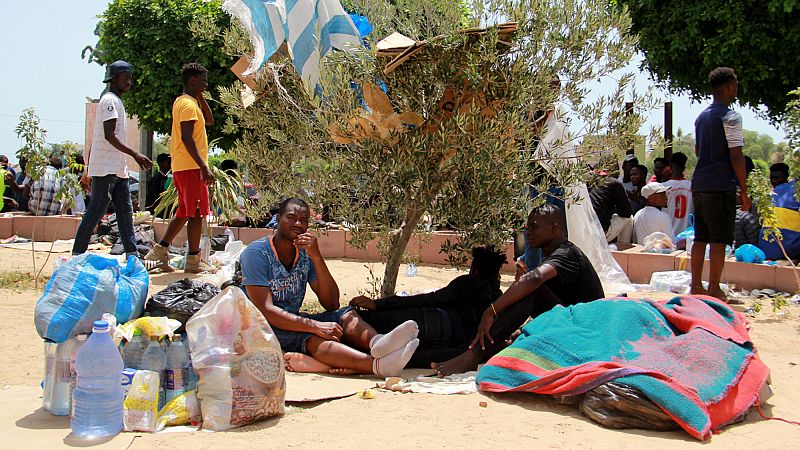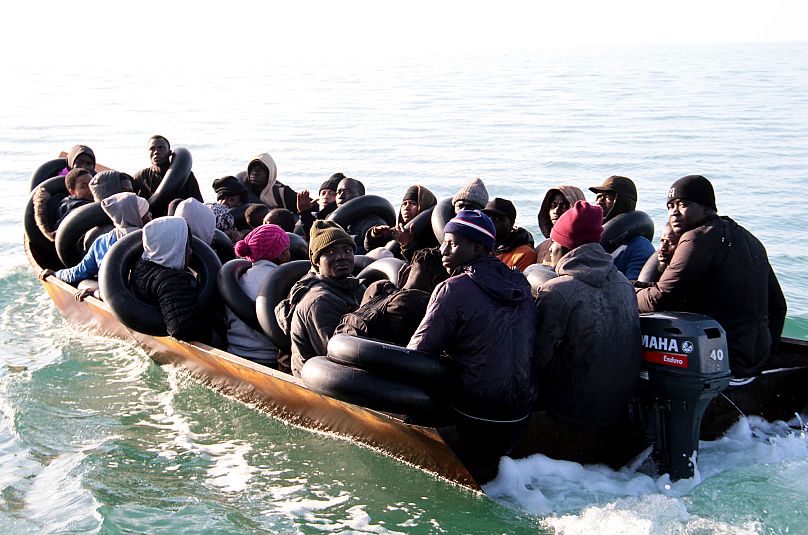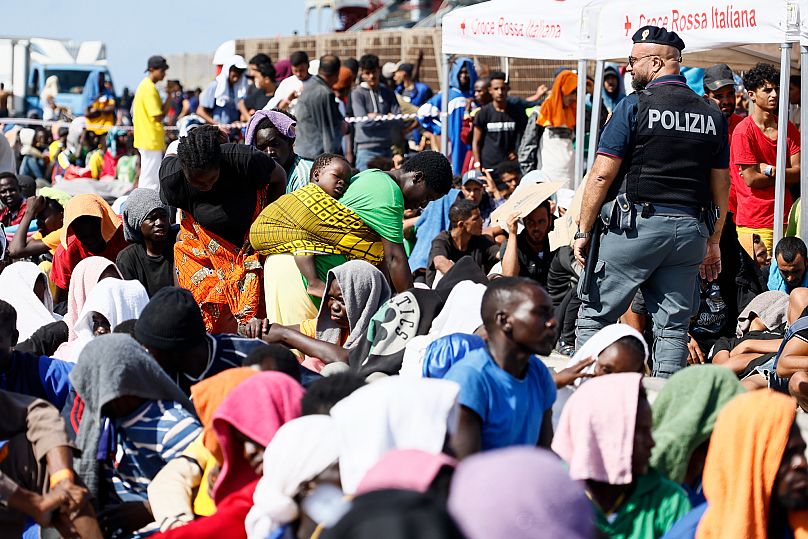
Authorities in Tunisia have begun dismantling dozens of makeshift camps housing African migrants as part of a sweeping operation to clear areas along the Mediterranean coastline and ease tensions with local residents.
The camps, located on privately owned land, have long been the site of violent altercations between migrants and Tunisians from nearby El Amra and Jebeniana, towns located north of Tunisia's second largest city, Sfax.
Spokesperson for Tunisia's National Guard, Brigadier General Hossam Eddine Jababli, said the sweeps intended to ensure "health and safety."
He said roughly 200 migrants who were detained were from sub-Saharan countries.
Authorities also claimed to have seized caches of bladed weapons during the raids and officials have since suggested that deportations may soon begin for those suspected of planning acts of violence.

They have previously suggested more than 20,000 people were sheltering in the camps, which are near a part of the coastline located less than 161 kilometres from the Italian islands that form the European Union's outermost borders.
Tunisian security forces have ramped up efforts to prevent migrants from crossing the sea, a journey that can be deadly.
By the end of February, 432 migrants arrived in Italy after leaving from Tunisia’s coast, according to the UN refugee agency.
The scope of the camps had long alarmed local communities and lawmakers.
Tarek Mahdi, a local parliamentarian, told regional radio that there were 17 camps in El Amra, where residents have staged protests.
Since the camps there were dismantled, authorities said they had relocated migrants to state-owned land in Bir Mellouli, southwest of Sfax.
Jababli confirmed the Tunisian government is collaborating with international migration organisations to facilitate voluntary repatriation for those who wish to return to their home countries.
Fears of forced expulsions and being bussed to Tunisia's desert borderlands again re-emerged as authorities prepared to dismantle the camps.

Last week, several videos and messages went viral in social media groups where migrants regularly seek information urging people not to trust Tunisian authorities or the International Organization for Migration.
The messages suggested without evidence that they may intend to deceive migrants into boarding buses under false pretences to be deported to Algeria or Libya.
Addressing concerns over the dismantling of the camps, Tunisian President Kais Saied told journalists on Sunday that the operation was conducted peacefully and without violence or coercion.
He framed the actions as guided by moral and humanitarian principles and said that removing the camps prevented migrants from settling on private property.







